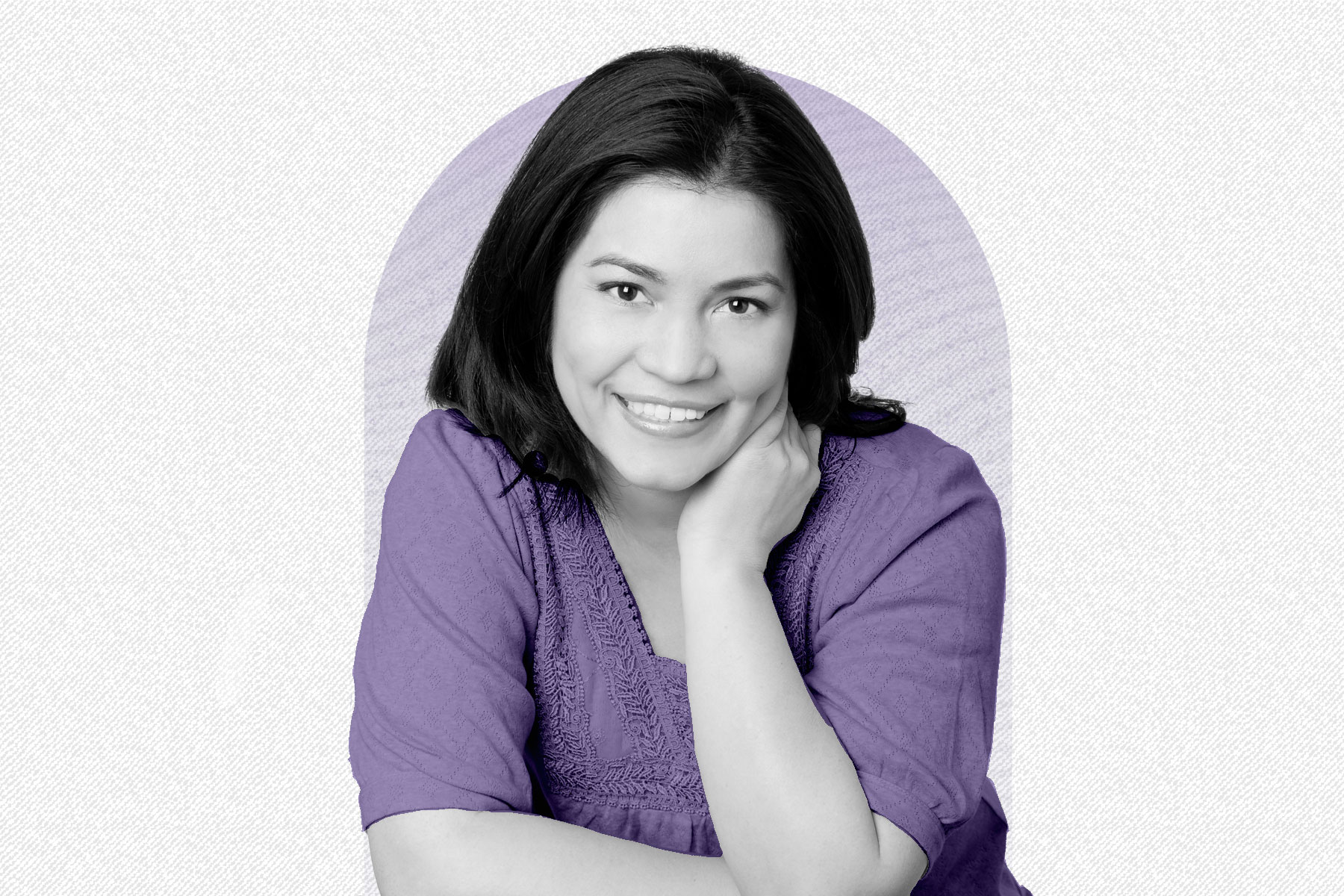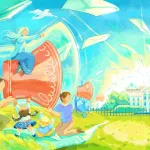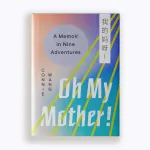This AAPI Heritage Month, we’re telling the untold stories of women, women of color and LGBTQ+ people. Subscribe to our daily newsletter.
Courtney Milan’s romance novels star a broad range of characters, from suffragists to gay Georgians to trans actuaries and, most recently, members of a fictional 19th century British Asian diaspora town. Her books — which underscore the importance of standing up for what one believes in, be it justice or love — are New York Times and USA Today bestsellers.
Before she was an author, Milan was a lawyer, eventually serving as a law clerk for two Supreme Court justices. In 2018 she shared her story of sexual misconduct perpetrated by the then-chief justice of the U.S. Court of Appeals for the Ninth Circuit. Milan was one of two former clerks who spoke on the record with the Washington Post; others were too fearful of retaliation from a powerful judge.
Part of the reason Milan shared her #MeToo story was to advocate for law clerks and make it clear that matters of sexual misconduct were excluded from judicial confidentiality. With this experience, it’s no surprise that Milan is civically engaged and actively organizing on behalf of voter access. She is busy co-planning the next iteration of Romancing the Vote, an online auction benefiting voting rights organizations. Those groups include Fair Fight, founded by Stacey Abrams — the former Democratic nominee for governor in Georgia who wrote romance novels under the name Selena Montgomery.
Milan’s newest series, the Wedgeford Trials, draws heavily from research into her family’s immigration history. The main character of “The Duke Who Didn’t” is Hakka, a Chinese ethnic group, like Milan’s grandmother.
The 19th sat down with Milan this Asian American and Pacific Islander Heritage Month to speak about writing, family history and what she wants people to know this election year.
This interview has been edited for length and clarity.
Jasmine Mithani: What has it been like to explore your ancestry through writing romance?
Courtney Milan: I feel like it’s happened fairly gradually for me, and it’s not necessarily something I intended to do. I’ve always been writing romances set in the mid- to late-Victorian era, and at some point, I asked myself, “Hey, you know, this is interesting, my great-grandparents started emigrating around this time. So why am I not writing about them?” That’s when I got the idea for it.
There were things that I had heard about my grandparents and great-grandparents that didn’t square with any of the stereotypes you hear, but it wasn’t until I started thinking about the history and learning about what they would have been facing at home, and what they left and where they were from, that I started thinking to myself, “Oh, that’s where it comes from.” I can see that connection.
AAPI Heritage Month: Leaving our mark on American democracy
This story is part of our AAPI Heritage Month coverage. This month, we’re telling the stories of people who are carving out space as the nation gains new citizens and another generation of American-born AAPI people comes of age. Explore our work.
Are there conversations about diversity in romance that you feel are happening over and over again? How would you want to push them forward instead?
I think it goes in fits and starts. When I first started writing romance — my first book was published in 2010 — people were talking about the need for diverse books. But the thing that they were hearing a lot was, “Well, nobody’s buying them.” That went around and around for about five or six years, and then you started learning things like, nobody’s buying them because when Borders gets romances that are written by Black women, they don’t put them in the romance section, so of course romance readers aren’t buying them, they can’t find them.
If the only place you can get a romance by an African-American author is to walk into the African-American section of the bookstore, that’s wild, right? It’s such blatant segregation.
I think that that has changed somewhat in the years since. And it sort of felt like it happened all at once. I actually don’t know if I can pinpoint any one thing that changed. Part of it was self-publishing, that there were authors who had great books, who could self-publish things, and it became evident that there was a huge market for it.
There have been times in the past where there have been more diverse books, and then less. It goes in waves. So I don’t want to necessarily rest on the assumption that things will continue.
In your most recent book, “The Marquis Who Mustn’t,” the story tackles patriarchy, family relationships and intergenerational trauma. How has who you are writing for changed over your career?
I do my best writing when I’m writing for one person, and that’s myself. If I think about other people, I get incredibly anxious. I’ve gotten better at understanding that I have to put all other people aside and write the book that means something to me. Here is something that matters to me today, and I just have to put my trust in the idea that other people going through this world will care about some of the same things and that what I write will resonate with them.
What do you hope readers leave your stories with?
The number one thing I would say is hope. I don’t mean that in the sense of an amorphous feeling in your breast that’s like, oh, things can get better. I like to think that I write books which are sort of like action applied to hope. The hope that things will get better is what pushes you to do the things that are necessary to do, to find the solutions to things that are hard and to actually change things that have been happening in generational patterns. And to build a better world that way.
How has writing romance been healing for you?
I started writing romance for a very specific reason. I started reading romance when I was working for a federal judge who was terrible. Abusive, sexual harassing, a pretty crap environment to work in.
For me, when I first started writing romance, like my first handful of books, I feel like I was writing so that I didn’t have to deal with any of that and what I should do. You can kind of see a shift in my books, as I got distance from it.
The act of writing a romance in which hard things are happening, and you have to do things to overcome circumstances makes you look at yourself and say, “How can I make this change? How can I make this world a better place? What am I doing that lives up to the values that I want to put in this?”
Writing romance really helped me understand the shape of what it was like to be in a situation like that, and to ask myself, “What do I need to do?” That’s why I feel like my being a romance writer and my being one of the first people to name themselves in an article that involves a #MeToo on a federal judge are very connected. You can’t be writing about people making the world a better place and not look at yourself and try to hold yourself to that standard.
We’re speaking against the background of former President Donald Trump’s trial about possibly falsifying business records to hide hush money payments to Stormy Daniels. What are your thoughts on the role of women in democracy during this election year?
We all know some of the statistics from some of the Trump years in which we feel if you look at the numbers, a lot of White women voted for Trump. It’s not on you if you didn’t. But a lot of White women voted for Trump. Trump put three people on the Supreme Court, and they were instrumental in taking away rights that we have held in common in this country for how many decades is it? [Ed. note: Almost five.]
It’s been a while since we have not had the right to control our own bodies. I hope that this is a wake-up call for people to understand that what they do and who they vote for really, really matters. We already know that the electorate is actually extremely engaged on the topic of abortion.
This is what’s at stake: our ability to control our future. It’s also when you look at sort of like what the posturing is from the right, and what the posturing is from the Supreme Court. Other things that are at stake are things like our ability to not get pregnant, under our own terms. That’s a really important thing that allows many, many women to choose what their life looks like and what their career looks like. I use the term women here, and I need to be clear that it’s actually pretty vital to a lot of people who are not just women. There’s so much at stake here, one hopes that it’s going to matter.
Arguably Asian-American women have been federally disenfranchised until about 50 years ago. What else is on your mind this year as a voter?
One of the things I’m doing right now, and this is not relevant to a book that’s coming out immediately but it will eventually, I’ve been reading about the 1880s in the United States. Speaking of Asian-American history, the 1880s are just right at the cusp of the passage of the Chinese Exclusion Act.
This is a time period in which there is a presidential election, in which one side is boorish and threatens riots and violence and wants all the Chinese to be thrown out, lest there be a mass wave taking over the country. Meanwhile, incredibly wealthy people own all the industries and control the railroads and the oil, and basically everything that people need to live without any restraint. It feels in many ways these two eras [the 1880s and the present] are just really synonymous with each other. If you look at the language around Chinese exclusion in the 1880s, and you look at the language that’s been used, when they talk about “illegals” and “migrants,” I think you can see a lot of similarities. The old things are coming around again. One thing to remember is that we really just don’t need to do this again. We could be better. I hope we are.
Going back to your books, you said that the fictional invention in the Wedgeford Trials isn’t that Asian people existed in Victorian England, but that they were allowed to stay. What has the reaction been like to this alternate world you’ve created?
There were a lot of people who sort of felt like it was ahistorical. And my reaction is that I don’t care. It’s not that I don’t care about things being ahistorical, I just don’t care what people think about the history that I’m including, because all of them were perfectly willing to read books in which people drank tea, in which they placed sugar, and had rum, and Madeira, and wore cotton, and did not ask themselves where those products came from, and who produced them, and how the products got from point A to point B.
If you can imagine somebody bringing a brick of tea from China to England, can you also imagine a person? If you can’t, that’s not on me.
The beginnings of the first Asian diaspora were already happening when the British Empire stopped using slavery. Officially, they turned to indentured servant contracts. Literally millions of Chinese people moved because of the demand for labor. So it was happening historically. But if you don’t want to know about it, I can’t make anyone.
In your afterwords, you’ve talked about your research project for books and how it goes hand-in-hand with researching your own family history. I’m curious what advice you have for people who are digging into their own complicated family history, specifically around immigrant narratives where language can be a barrier.
The lack of records on a lot of things can be a problem. For instance, if we’re trying to trace where my maternal great-grandfather was from, we have the English version from an immigration transcript that gives the name of the village, but we have no idea what characters are associated with that, or if it was correctly transliterated. There’s just a lot of stuff that you don’t know.
If you’re playing with fiction, you can be a little faster and looser, because you don’t need to know the answer. You need to know an answer.
In some ways, what I want to do is to center a voice that’s just blank in history, and have people think about what that voice means and what those people were doing and what it looked like. I want that space to be filled with something that feels like even if it is not the truth, we can’t know the truth, it is a truth. A thing that could have happened, a person who could have been there, a version of a history that has been left silent that is now heard.
Let’s talk about Romancing the Vote. When you talk about voting to your audience, what are those conversations like? Especially thinking about this is an election year where a lot of people are not as enthusiastic about at least the presidential election?
I don’t actually think it’s useful or vital to argue with anyone who’s not feeling enthusiastic. People feel the way they’re going to feel, and if someone feels that way, like they probably have some kind of a reason and it’s probably valid based on their values.
The goal of what we’re doing is to raise money for organizations that help people who would otherwise be shut out of voting and who want to vote. It is about remedying unequal treatment under the law as it is currently allowed.
Our goal is to help people vote when they don’t have the option otherwise.
Why do you think voting is important?
There’s two reasons. One is just purely results oriented. I think when more people vote, we get results that better reflect our country and our values, and so I want more people to vote. And the other one is a little more value based. When people are involved in their community and feel like they have a say, I think they’re more engaged in the world as a whole. I think that makes for a better community, regardless of the results.
Remember that the rights that you enjoy today are not necessarily things that we can count on having in the future. Think about what those rights mean and how you want to uphold them.






